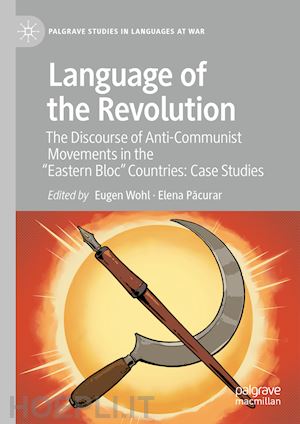
Questo prodotto usufruisce delle SPEDIZIONI GRATIS
selezionando l'opzione Corriere Veloce in fase di ordine.
Pagabile anche con Carta della cultura giovani e del merito, 18App Bonus Cultura e Carta del Docente
Eugen Wohl is Lecturer within the Department of Foreign Languages for Specific Purposes, Faculty of Letters, Babe?-Bolyai University of Cluj, Romania and a theatre critic (IATC member).
Elena Pacurar is Lecturer within the Department of Foreign Languages for Specific Purposes, Faculty of Letters, Babe?-Bolyai University of Cluj, Romania, where she teaches practical courses of English for Specific Purposes.











Il sito utilizza cookie ed altri strumenti di tracciamento che raccolgono informazioni dal dispositivo dell’utente. Oltre ai cookie tecnici ed analitici aggregati, strettamente necessari per il funzionamento di questo sito web, previo consenso dell’utente possono essere installati cookie di profilazione e marketing e cookie dei social media. Cliccando su “Accetto tutti i cookie” saranno attivate tutte le categorie di cookie. Per accettare solo deterninate categorie di cookie, cliccare invece su “Impostazioni cookie”. Chiudendo il banner o continuando a navigare saranno installati solo cookie tecnici. Per maggiori dettagli, consultare la Cookie Policy.